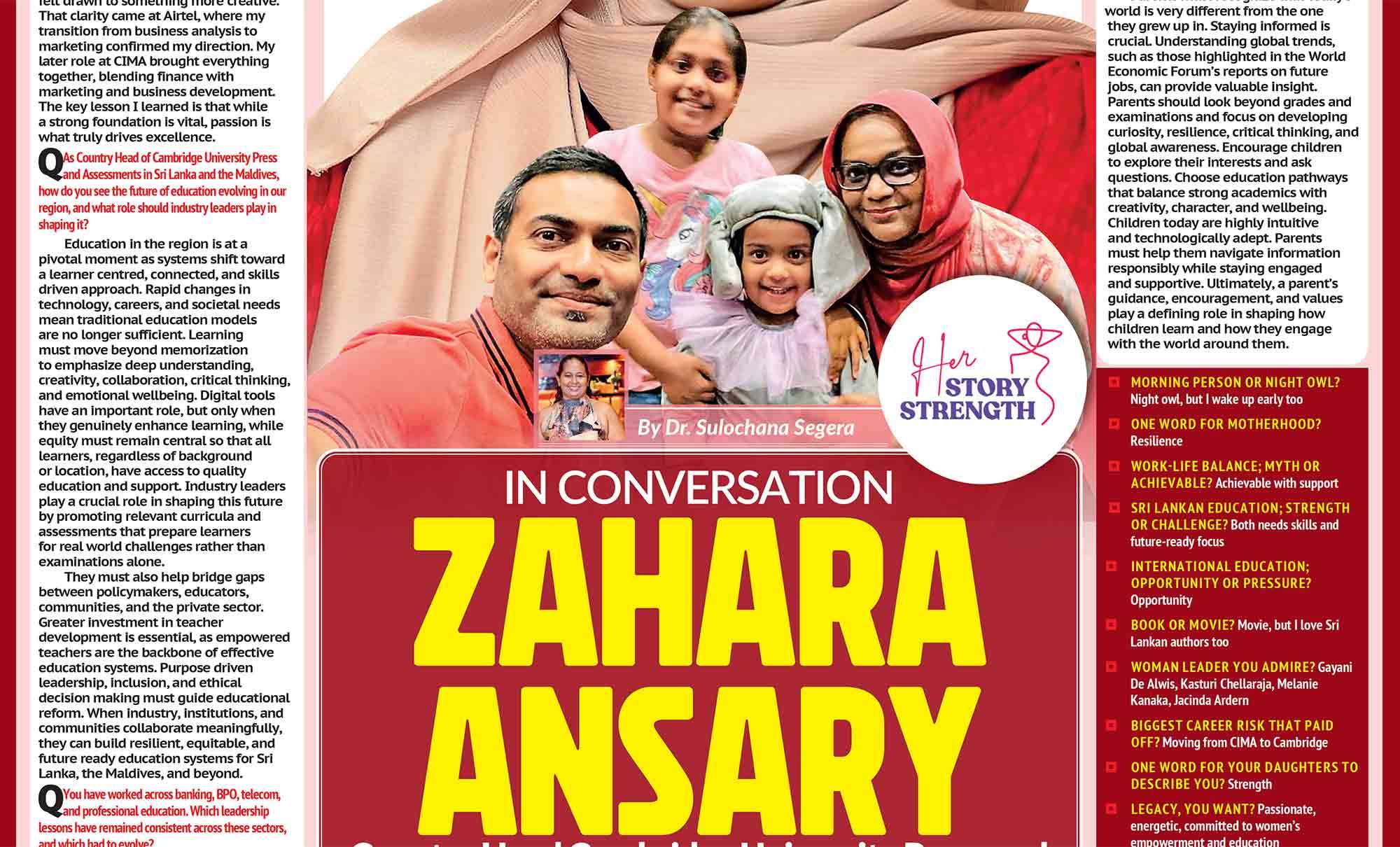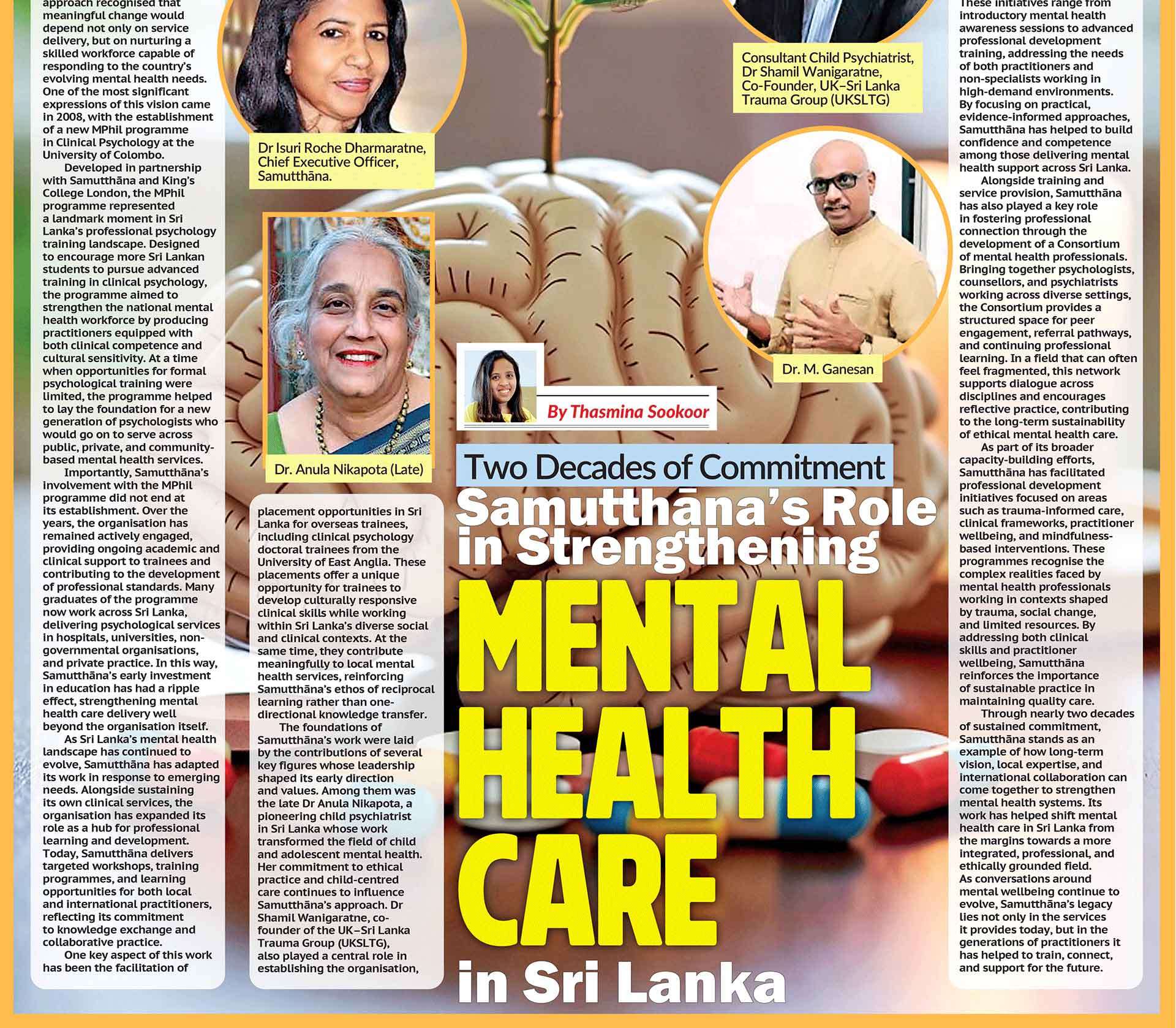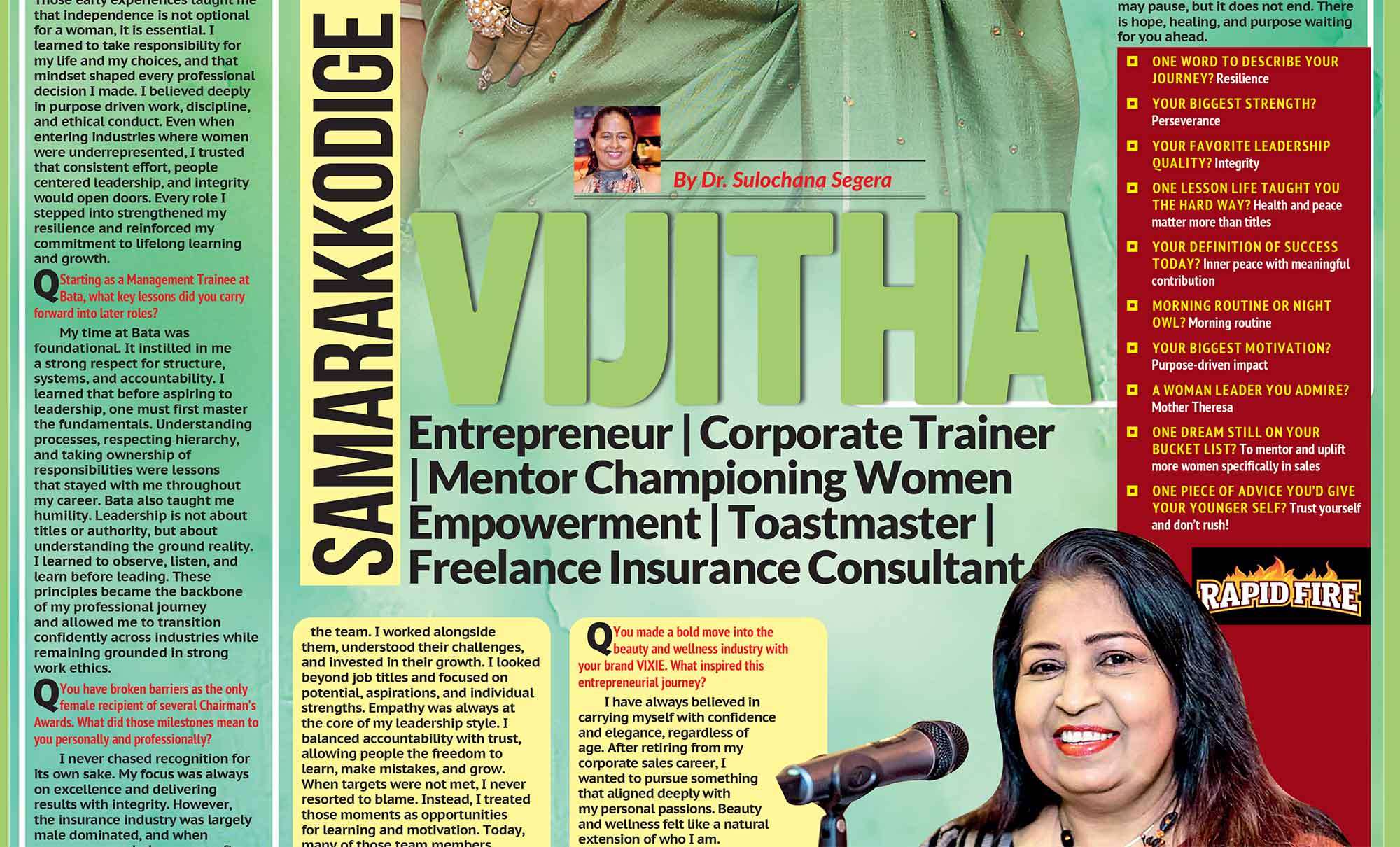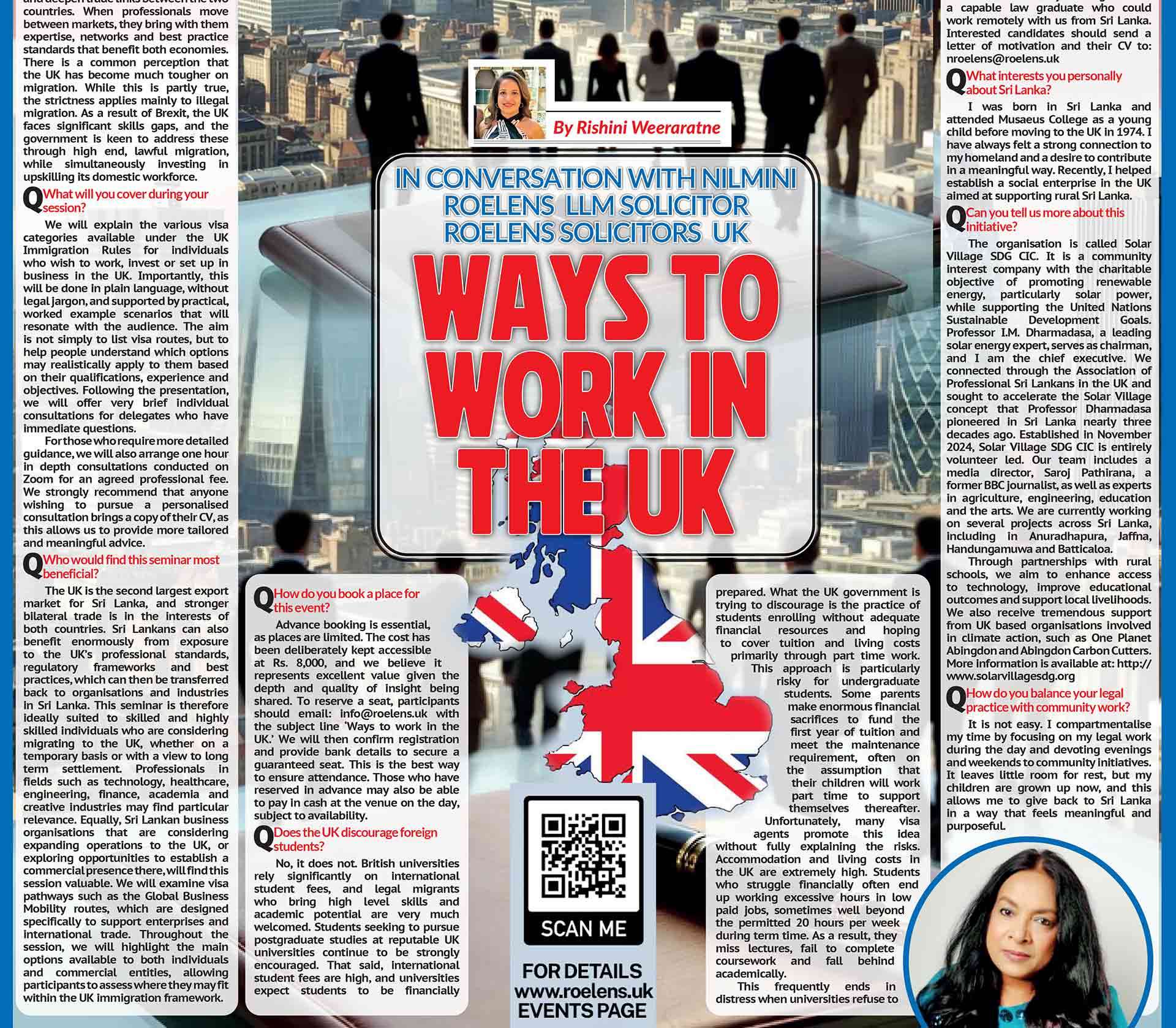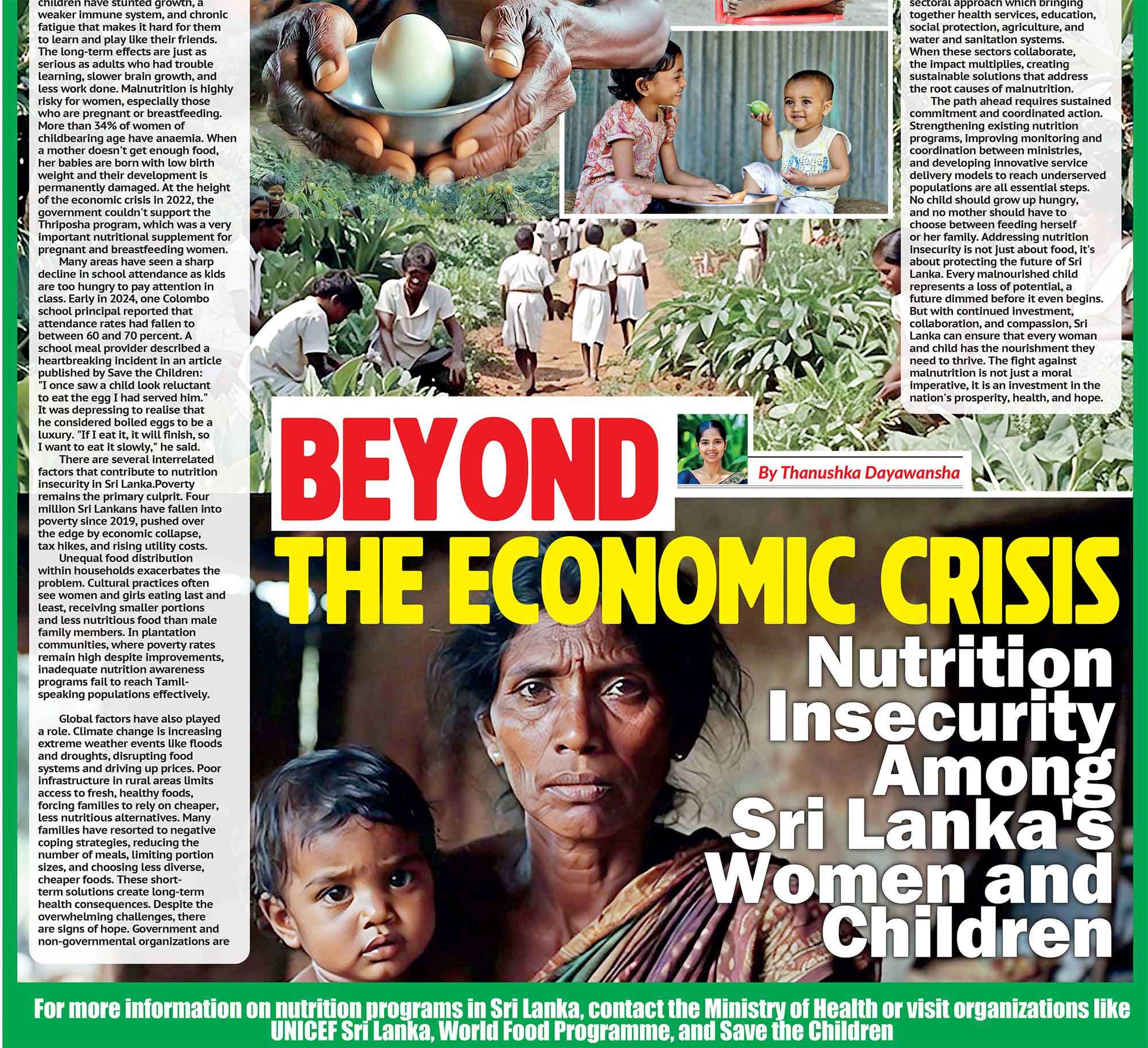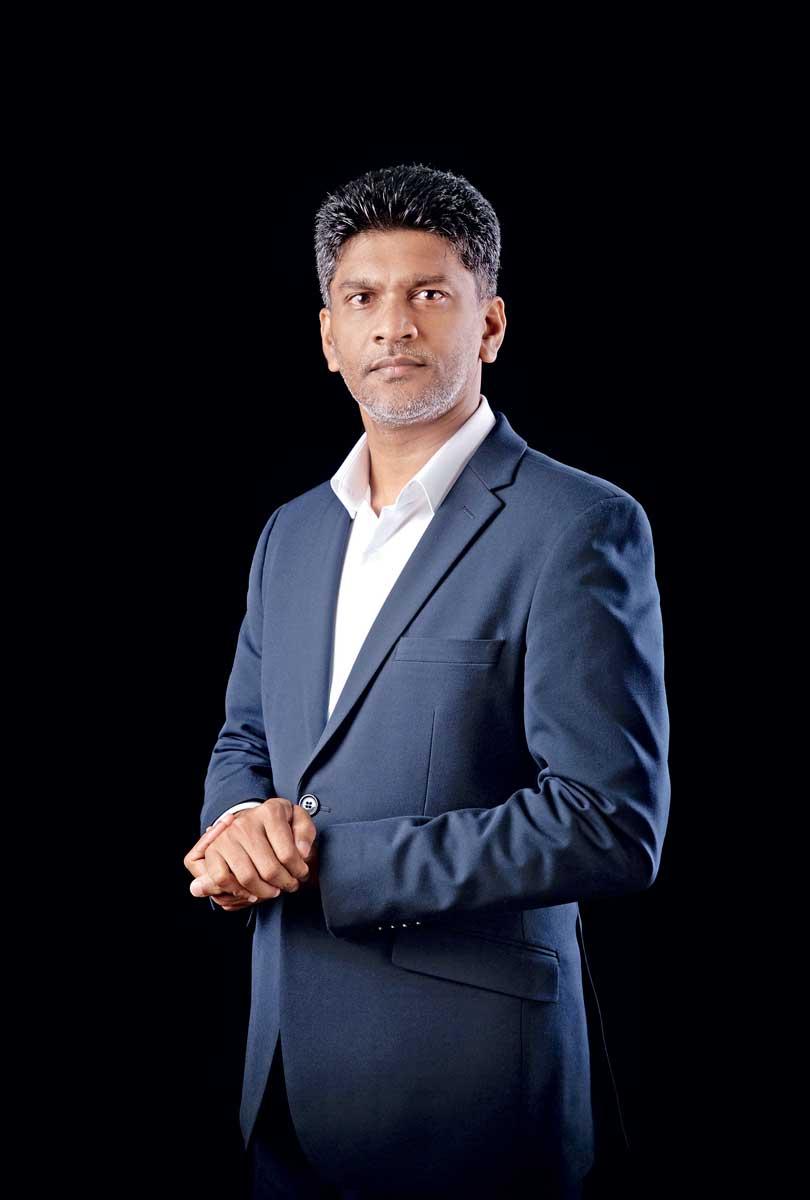
In the ever-evolving world of business and technology, only a few leaders manage to blend innovation, resilience, and a genuine commitment to people. Asanga Marasinghe, Chief Executive Officer of Inivos Group, is one such leader. With over two decades of experience from his formative years at IFS to building Inivos into a globally recognized consulting and software development powerhouse, Asanga’s journey is marked by decisive leadership, an unshakable belief in his vision, and a deep dedication to empowering others. Today, Inivos operates across continents, serving clients in North America, Europe, Scandinavia, the Middle East, and the Asia Pacific, delivering transformative solutions that go far beyond automation. In this conversation, we explore Asanga’s path from a young scholarship recipient to a respected industry leader, the challenges he has overcome, and his vision for the future of digital transformation.
Q What was the first major opportunity that truly changed your career trajectory, and how did your early education at Nalanda College and later at IIT shape your leadership mindset?
Looking back, I believe the first major turning point was my education, combined with the opportunities that followed. Nalanda College provided me with a strong foundation, not just academically, but also in discipline and values, which continues to shape my approach to leadership even today. Later, studying at IIT helped broaden my technical skills and gave me exposure to a global mindset, which was crucial as I stepped into the IT industry. My first big break was joining IFS. That experience was huge for me, learning how complex enterprise systems work, collaborating with people from different backgrounds. It showed me that leadership isn’t just about tech knowledge, but also about understanding people and having a clear vision. That’s something I really carry into how I lead at Inivos. When we started Inivos back in 2019, we aimed to be a service-driven company, focusing on ERP consulting. But as we grew, we realized there was a bigger opportunity in product development and global software services. So, it became clear that leadership had to be flexible and people-centered. My early experiences helped shape that mindset.
Q Being appointed as Country Director for Bangladesh at a young age was a significant milestone. How did you handle the pressure and skepticism that came with it?
Thinking about it now, being appointed as Country Director for Bangladesh at a young age was definitely a big milestone. And yes, it came with its share of pressure and skepticism. But I focused on what really matters: delivering consistent results and building trust. At Inivos, we’ve always emphasized teamwork and open communication, so I made sure to lean on my team and listen closely. I believe that passion, commitment, and the right mindset are just as important as experience or age. Having a strong leadership team with me gave me the confidence to take on challenges and make decisions with conviction. Ultimately, leadership is about accountability and service, not just titles, and that’s the mindset that guided me through.
Q What were the most valuable leadership lessons you learned during your two decades at IFS?
Spending nearly two decades at IFS was an incredible learning journey. One of the biggest leadership lessons I took away was the importance of leading by example. It’s not enough to give directions, you have to be right there with your team, showing commitment and integrity every day. I also learned how crucial clear communication is, especially in complex projects and diverse teams. Ensuring people understand not only what needs to be done but also why it matters builds genuine ownership and accountability. Adaptability was another key takeaway. The tech industry moves fast and being able to pivot while keeping a bigger picture in mind is essential. Most importantly, IFS reinforced that leadership means keeping sight of who you’re serving. When you stay tuned in to what customers truly need, you make decisions that keep both your team, and your work aligned with delivering real value. Empathy ties all of this together, not just for your team and their challenges, but also for understanding customers as people. That balance between empathy for those inside the company and those we deliver is what makes leadership meaningful. It’s a mindset I carry with me every day at Inivos.
Q How did you go about assembling the right founding team, and what qualities did you look for?
When we started assembling the core team for Inivos, I knew from the start that getting the right people was absolutely critical. We weren’t just looking for skills or experience; it was about finding people who shared our vision and values. I wanted team members who were not only talented but also adaptable, curious, and ready to take ownership. It’s important to have people who can wear multiple hats and step up when needed, especially in a startup environment. Trust and open communication were also key qualities. We needed a team that could challenge each other, give honest feedback, and work together through ups and downs. Ultimately, the founding team was built on a shared commitment to creating something meaningful and long-lasting, and that mindset made all the difference as we grew Inivos into what it is today.
Q What was the biggest challenge in transitioning from being an employee to a co-founder and CEO?
The biggest challenge moving from employee to co-founder and CEO was shifting my mindset to take full responsibility, not just for my own work, but for the entire company, including the team and our clients. As an employee, you focus on your tasks, but as a founder, every decision affects everyone. It’s about balancing the needs of your people, supporting and empowering them,
meeting client expectations and delivering exactly what they need. Ensuring we provide top-quality service while keeping the team motivated and aligned was a real learning curve. Starting Inivos as a small ERP consultancy and growing into a global company meant handling strategic growth alongside daily operations without losing our culture or values. Building trust internally and externally, with clients across different countries, took patience and clear communication.
This transition taught me that leadership is about owning all aspects, people, clients, and business, and finding ways to grow sustainably while putting both employees and customers first.
Q Inivos has grown into a global consulting and software development leader. How would you define the company’s unique value proposition in such a competitive market?
What really sets Inivos apart is our people-first approach combined with deep industry expertise. We don’t just deliver software or consulting as a checklist, we focus on truly understanding our clients’ challenges and goals, then tailor solutions that make a lasting impact. Our team brings a unique mix of technical skills and business knowledge, so we can bridge the gap between technology and real-world results. Plus, we invest a lot in nurturing local talent and building strong partnerships globally, which helps us stay agile and innovative. In a competitive market, it’s that blend of genuine partnership, quality delivery, and a culture that values people that really defines who we are.
Q What has been the toughest business decision you’ve had to make since founding Inivos?
One of the toughest business decisions I’ve had to make since founding Inivos was shifting our focus from being purely an ERP consultancy to expanding into product development and broader technology services. At the time, it felt like stepping into unknown territory, investing in new skills, building new teams, and entering different markets. There was definitely some risk involved, and it wasn’t an easy call. But looking back, it was necessary to stay competitive and meet the evolving needs of our clients. That decision ultimately opened up new opportunities for growth and helped shape Inivos into the global consulting and software development leader it is today.
Inivos now operates across multiple regions. What are the cultural and strategic adjustments you’ve made for different markets?
Operating across multiple regions means we’ve had to be thoughtful about how we approach each market. Culturally, we make sure to respect local customs and ways of working, because what works in one place might not work in another. We listen closely to our clients and teams on the ground to understand their unique needs and challenges. Strategically, we build flexibility into our processes. Our core values and quality standards stay consistent, but we allow room to adapt how we deliver solutions based on local market conditions and expectations. It’s a balance between maintaining our global standards and being agile enough to fit different business cultures. At the end of the day, it’s about building genuine relationships, and trust meet our customer expectations wherever we operate. That’s what helps us succeed across diverse markets.
Q What is your long-term vision for Inivos beyond its current scope?
The way I see it going forward, my long-term vision for Inivos is to grow beyond just being a consultancy or software provider. We want to be a true partner in digital transformation for businesses globally, helping them not just with technology, but with strategy, innovation, and sustainable growth. We’re also focused on building a strong, global team that thrives on learning and adapts quickly to changes. Expanding into new markets and industries will be part of that growth, but always with our core values intact: people first, quality always. Ultimately, I see Inivos as a company that not only delivers solutions but creates lasting impact for clients, employees, and the communities we serve.
Q If you could give one piece of advice to young professionals aspiring to become leaders in tech, what would it be?
If I had to give one piece of advice to young professionals who want to lead in tech, I’d say this, the industry will keep changing, but that doesn’t mean you have to change who you are. What you do need is the ability to adapt. Know where you want to go, keep your goals in sight, and adjust your path as things shift. And through it all, hold on to a positive attitude and the right mindset. Challenges will come, they always do, but if you face them with that mindset, you’ll grow as a leader and inspire the people around you.





